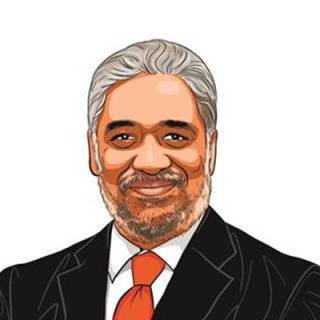India’s solidarity with Prince Salman’s reform agenda back home is important
Prince Salman has often proclaimed his commitment to reverse the hugely negative consequences of 1979. Delhi has every reason to strongly support Prince Salman. After all, India continues to suffer these consequences.

Saudi Crown Prince Mohammed bin Salman’s visit to India this week — as part of a larger tour of Asia including Pakistan and China — should mark the consolidation of two important trends and help initiate a significant third. The first relates to the trilateral dynamic with Pakistan and the second to the deepening of the bilateral relationship between Delhi and Riyadh.
The third is about extending support to Prince Salman’s agenda for “reversing 1979”, when tumultuous regional developments and the Saudi response to them began to alter the equation between religion and politics in the region, destabilise India’s neighbourhood and change South Asia’s inter-state relations for the worse.
But first to Pakistan. Partition injected a particular complexity to India’s engagement with the Arabian Peninsula. The Subcontinent’s historic relationship with the Gulf is deep and civilisational. In the colonial era, the British Raj in undivided India became both the provider of security and the facilitator of the region’s economic globalisation.
After Partition and Independence, Pakistan sought to mobilise political support from the Middle East in the name of shared religious identity. After Britain granted independence to the smaller Gulf kingdoms and withdrew most of its military forces from the east of Suez at the turn of the 1970s, Pakistan stepped in to pick up some of security slack in the region. (The US, of course, was the main force that filled the vacuum left by Britain.)
Although India was a preferred security partner for some Gulf countries, non-aligned India had little interest in continuing the strategic legacy of the Raj. At the political level, India’s emphasis was on solidarity with Arab nationalism and against neo-colonialism and Western imperialism. Given its preference for “secular republics” in the Middle East, an element of defensiveness inevitably crept up in India’s relations with the religiously conservative monarchies, especially Saudi Arabia.
Riyadh became the moving force behind the Organisation of Islamic Cooperation that was set up in 1969 to unite the region’s conservative regimes as a counter to Soviet-leaning Arab nationalists. The forum’s hostile rhetoric on the Kashmir question (at the instigation of Pakistan) congealed the perception in Delhi that Saudi Arabia and the conservative monarchies were “pro-Pakistan”. In reality, though, the Kashmir issue was never much of a priority for the Saudis.










.png)




























No hay comentarios:
Publicar un comentario